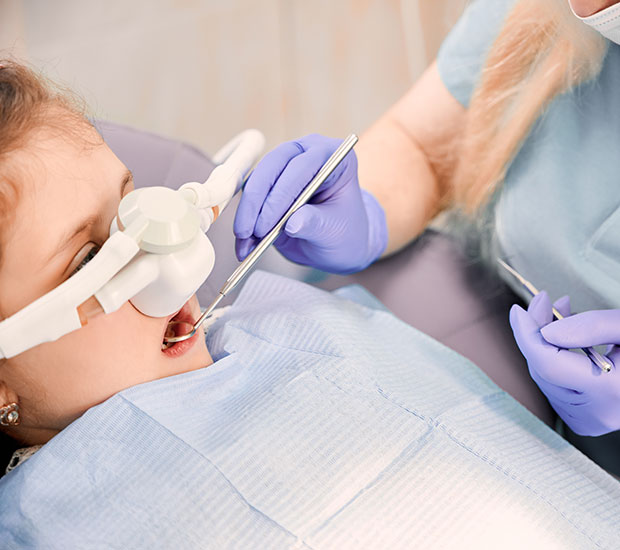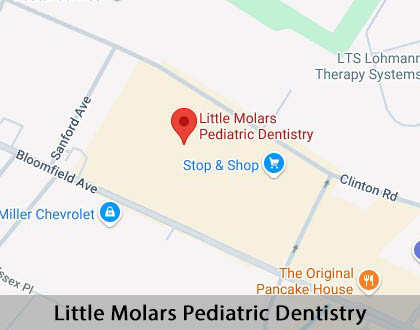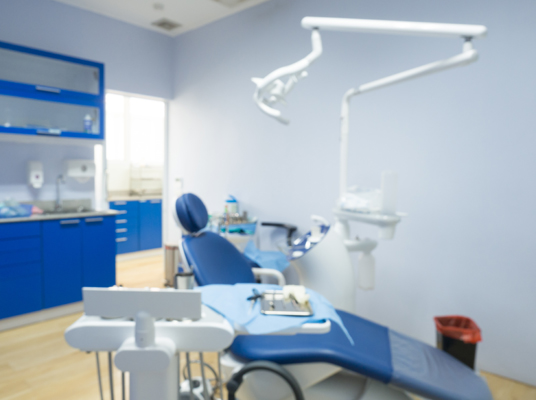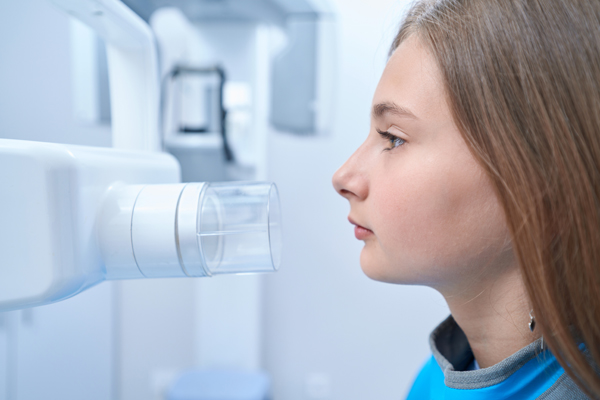Nitrous Oxide West Caldwell, NJ
A trip to the dentist’s office can be an anxiety-provoking affair, especially when it comes to young children or patients who have special needs. These patients may have anxiety about being around unfamiliar people or equipment, or they may have a fear of discomfort.
For this reason, many dental offices offer a form of light sedation using nitrous oxide gas, which is also known colloquially as laughing gas. Nitrous oxide is a naturally occurring gas that lacks an odor or color. Some patients report that it has a slightly sweet taste. During sedation with nitrous oxide, a mask will fit over the patient’s nose and mouth, and they will inhale a mixture of nitrous oxide and oxygen.
Nitrous oxide is available to help create a more relaxing experience for your child at Little Molars Pediatric Dentistry in West Caldwell and the surrounding area. Call us at (862) 451-8222 to learn more about our services.
Treatments That May Use Nitrous Oxide
Nitrous oxide can be used for various treatments, ranging from simple dental cleanings to fillings and tooth extractions. Nitrous oxide can be especially beneficial during lengthy procedures, when children may have difficulties staying still and remaining calm.
How to Discuss Sedation With a Child
According to the American Academy of Pediatric Dentistry (AAPD), nitrous oxide is well-tolerated by children. Many children report enjoyment of the tingling or warm sensations produced by this treatment. When discussing nitrous oxide with a child, use plain and simple language and avoid euphemisms. Describe the process in detail so that children know what to expect.
“Nitrous oxide can be especially beneficial during lengthy procedures, when children may have difficulties staying still and remaining calm under normal conditions.”
History of Nitrous Oxide
Nitrous oxide was originally discovered in 1772 and, according to the National Library of Medicine database, it has been used by dentists for anesthesia for almost 180 years. It is a combination of two nitrogen molecules and one oxygen molecule, which is how it got its name.
What to Expect When Receiving Nitrous Oxide
Before the sedation procedure, a dentist will review a patient’s medical history to ensure eligibility. A dentist will then place a mask over the patient’s nose. During the treatment, a mixture of gasses will flow through the nasal mask as patients breathe regularly through their nose. Patients will be asked to limit their talking and mouth breathing so that the medication can have its proper effect.
Patients may feel light-headed or tired during the procedure, and they may feel that their arms and legs are tingly or heavy. Less commonly, patients may feel nauseous or vomit. This is very rare and can be resolved with the administration of oxygen gas. After the nitrous oxide gas is stopped, dentists will administer pure oxygen through the mask for a few more minutes to minimize post-treatment side effects, such as headaches.
“During the treatment, a mixture of gasses will flow through the nasal mask as patients breathe regularly through their nose.”
Sedation Safety Measures And Eligibility
According to the American Dental Association, dental practices have a safeguard mechanism on their nitrous oxide delivery systems to ensure a highly safe and effective process. Many dentists also use additional monitoring of vital signs throughout the procedure.
Children who are eligible to receive nitrous oxide include:
- Those with fear, anxiety, or behavioral difficulties that interfere with carrying out dental procedures
- Those who may have an unpredictable reaction to dental procedures
- Those with a highly sensitive gag reflex
- Patients who do not tolerate other forms of anesthesia
According to the AAPD, patients who are ineligible to receive nitrous oxide include those with the following medical conditions:
- Chronic pulmonary disease
- Upper respiratory infections
- Recent middle ear problems or operations
- Bleomycin sulfate therapy
- Methylenetetrahydrofolate reductase (MTHFR) enzyme deficiency
- Vitamin B12 deficiency
Special Needs During Sedation With Nitrous Oxide
When it comes to sedation with nitrous oxide, patients should be able to tolerate wearing a nasal mask, selectively breathe through their nose, and communicate throughout the procedure. If the patient may have difficulty with this treatment, we can help determine the most effective course of action with them and the parent during a consultation.
“According to the American Dental Association, dental practices have a safeguard mechanism on their nitrous oxide delivery systems to ensure a highly safe and effective process.”
Check out what others are saying about our dental services on Yelp: Nitrous Oxide in West Caldwell, NJ
Types of Sedation
Nitrous oxide is a safe and effective form of light sedation, and it is the focus of this current discussion. However, for more severe dental treatments or procedures, a dentist may use another form of sedation. Some procedures may require sedative medications administered via oral ingestion or a type of medicine injected through an intravenous line. Other procedures may require general anesthesia. Dentists are qualified to provide sedation with nitrous oxide and different kinds of sedation. They will work with patients to determine what type of treatment best suits each individual’s needs.
“Some procedures may require sedative medications administered via oral ingestion or a type of medicine injected through an intravenous line.”
Questions Answered on This Page
Q. How can I talk to my child about sedation with nitrous oxide?
Q. What does it feel like to be sedated with nitrous oxide?
Q. Who should not receive sedation with nitrous oxide?
Q. What are potential alternatives to nitrous oxide?
Q. What happens after sedation with nitrous oxide?
People Also Ask
Q. How can I tell if my child has a dental emergency?
What to Expect Following Sedation
After sedation with nitrous oxide, patients do not generally have any lingering effects. In some patients, muscle coordination or attention may be decreased for a few minutes after sedation, according to the California Dental Association. Patients may notice a different "mouth feel” depending on what type of procedure they have undergone, but they will quickly adjust to the new sensations. If patients who have received sedation with nitrous oxide have other concerns following the procedure or are experiencing side effects, parents should contact their dentist immediately for further instruction.
“If patients who have received sedation with nitrous oxide have other concerns following the procedure or are experiencing side effects, parents should contact their dentist immediately for further instruction.”
Frequently Asked Questions
Q. Does nitrous oxide put children to sleep?
A. Nitrous oxide does not put patients to sleep, but it decreases their feelings of anxiety and decreases any painful sensations. Patients can still hear, see and follow directions when under the influence of nitrous oxide. Importantly, their breathing is not affected.
Q. Why is nitrous oxide called "laughing gas”?
A. Nitrous oxide is not called "laughing gas” because it causes patients to laugh but because it has a pleasant and calming effect that can reduce inhibitions. When inhibitions are lowered, it can sometimes lead to laughing or giggling.
Q. How long do the effects of nitrous oxide last?
A. The effects of nitrous oxide are rapid to initiate and extinguish. Patients will feel the medicine kick in after just a few minutes of inhalation, and they will feel its effects persist for only a few minutes after the treatment ends.
Q. Is it possible to have an allergy to nitrous oxide?
A. No. According to the California Dental Association, nitrous oxide is a non-allergenic substance. This means that it does not provoke an allergic response.
Q. How can I help prepare my child for nitrous oxide?
A. Nitrous oxide sedation may cause nausea or vomiting in some patients. Consequently, you should limit your child's food intake immediately before or after the procedure. Providing our team with a complete list of any medications or supplements your child is currently taking can also help ensure that your child undergoes the safest procedure possible.
Quality Pediatric Dental Services Can Transform Smiles
By visiting us as soon as possible, our team can help get your child the professional treatment they need.
Definition of Pediatric Dental Terminology
Call Us Today
If, after reviewing this information, you think sedation with nitrous oxide might be beneficial for your child, contact us at 862-451-8222 to find out the next steps.
If you live in the West Caldwell area, call 862-451-8222 for an appointment in our West Caldwell office.
Helpful Related Links
- American Dental Association (ADA). Glossary of Dental Terms. 2024
About our business, license, and website security
- Little Molars Pediatric Dentistry was established in 2023.
- We accept the following payment methods: Cash, Discover, MasterCard, and Visa
- We serve patients from the following counties: Essex County
- We serve patients from the following cities: West Caldwell, Caldwell, North Caldwell, Fairfield, East Hanover, Montville, Verona, and Montclaire
- Norton Safe Web. View Details
- Trend Micro Site Safety Center. View Details
Back to top of Nitrous Oxide







